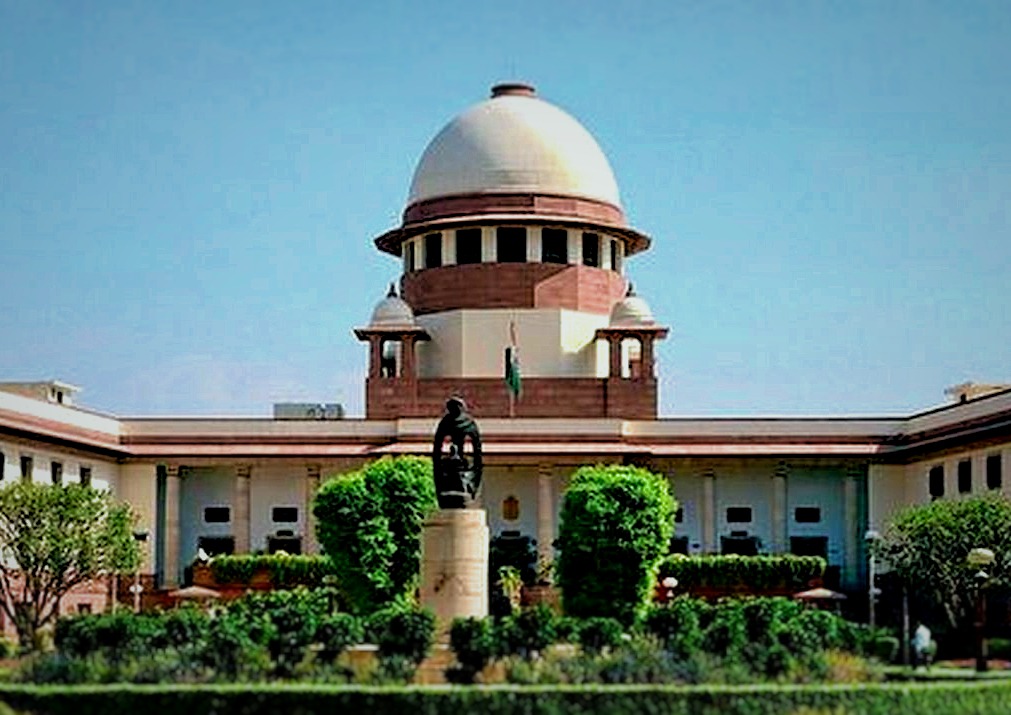Magistrate can summon accused whose name may not feature in FIR or police report, if materials on record reveal his involvement in offence: Supreme Court

Read Judgment: Nahar Singh vs. State of Uttar Pradesh & Anr.
Pankaj Bajpai
New Delhi, March 17, 2022: While considering the power of a Magistrate taking cognizance of an offence on the basis of a police report in terms of Section 190 (1)(b) of CrPC to issue summons to any person not arraigned as an accused in the police report, the Supreme Court opined that, for summoning persons upon taking cognizance of an offence, the Magistrate has to examine the materials available before him for coming to the conclusion that apart from those sent up by the police some other persons are involved in the offence.
A Division Bench of Justice Aniruddha Bose and Justice Vineet Saran observed that materials to be examined by the Magistrate need not remain confined to the police report, charge sheet or FIR, but, statement made u/s 164 of CrPC could also be considered for such purpose.
Going by the background of the case, the Chief Judicial Magistrate (CJM), Bulandshahr, Uttar Pradesh had taken cognizance of offences u/s 363, 366 and 376 of IPC on the basis of a police report, which had named two individuals as accused-Yogesh and Rupa. The police report was made on the basis of an FIR made by the mother of a lady victim (prosecutrix), wherein she stated that in 2012 her daughter was enticed away by said Yogesh and his two or three associates. The Investigating Officer recovered the prosecutrix and recorded her statement u/s 161 of CrPC wherein she stated that Yogesh had committed rape upon her. The victim was, thereafter, produced before the Additional Chief Judicial Magistrate and her statement u/s 164 of CrPC was recorded wherein she disclosed the names of the accused Rupa, Yogesh as also Nahar Singh (appellant), as the persons who had committed rape upon her.
The CJM found that there was no ground to summon the appellant for trial. Against this order, the de facto complainant invoked the revisional jurisdiction of the Sessions Judge, which set aside the order passed by the CJM and remanded the matter to the Court of the CJM. It was also observed in the order of the Revisional Court that the Magistrate should pass a lawful order to summon the accused, Nahar Singh in the matter. Thereafter, the CJM heard the matter on remand and the appellant was directed to be summoned for trial.
The appellant thereafter approached the Allahabad High Court urging that exercise of jurisdiction by the CJM u/s 190 (1)(b) of CrPC was impermissible in the subject case. The appellant’s case was that as he had not been named as accused in the charge-sheet, he could only be summoned in exercise of jurisdiction u/s 319 of CrPC. The High Court held that it was the duty of the Magistrate to find out with respect to the complicity of any person apart from those who were charge-sheeted by sifting the corroborative evidence on record. In case the Magistrate came to the conclusion that there was clinching evidence supporting the allegations made against persons who have not been charge-sheeted, it was his duty to proceed against such persons as well by summoning them.
After considering the submissions, the Top Court observed that jurisdiction to issue summons can be exercised even in respect of a person whose name may not feature at all in the police report, whether as accused or in column (2) thereof if the Magistrate is satisfied that there are materials on record which would reveal prima facie his involvement in the offence.
None of the authorities limit or restrict the power or jurisdiction of the Magistrate or Court of Session in summoning an accused upon taking cognizance, whose name may not feature in the F.I.R. or police report, added the Court.
Speaking for the Bench, Justice Bose found that in the present case, the name of the accused had transpired from the statement made by the victim u/s 164 of CrPC.
In the case of Dharam Pal and Others vs. State of Haryana and Another, (2014) 3 SCC 306, it has been laid down in clear terms that in the event the Magistrate disagrees with the police report, he may act on the basis of a protest petition that may be filed and commit the case to the Court of Session, and this power of the Magistrate is not exercisable only in respect of persons whose names appear in column (2) of the charge-sheet, apart from those who are arraigned as accused in the police report.
Justice Bose further noted that in the subject-proceeding, the Magistrate acted on the basis of an independent application filed by the de facto complainant.
“If there are materials before the Magistrate showing complicity of persons other than those arraigned as accused or named in column 2 of the police report in commission of an offence, the Magistrate at that stage could summon such persons as well upon taking cognizance of the offence”, added the Bench.
Accordingly, the Apex Court allowed the appeal.
Sign up for our weekly newsletter to stay up to date on our product, events featured blog, special offer and all of the exciting things that take place here at Legitquest.




Add a Comment